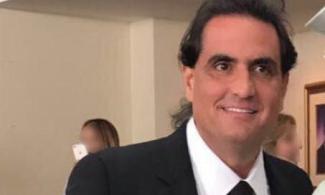
The latest adjournment is being widely criticised for having political undertones resting on the alleged connivance between the Cape Verdean government and the United States.
The Economic Community of West African States' (ECOWAS) Court sitting in Abuja, Nigeria, has for the third time adjourned the case of Venezuelan diplomat, Alex Saab, who was arrested by Cape Verde.
The adjournment at the hearing of the case on Tuesday makes it the third time in three months the ECOWAS court will be adjourning the case.

At the trial on Tuesday, the ECOWAS court said it was forced to adjourn the case following the sudden absence of a translator.
The latest adjournment is being widely criticised for having political undertones resting on the alleged connivance between the Cape Verdean government and the United States.
The envoy is caught up in a feud between Venezuela, his country, and the US.
Venezuela has continued to condemn the arrest of Saab stating that the envoy had diplomatic immunity when he was arrested.
It was gathered that Saab's continued detention follows a pattern of coercive measures by the US against Venezuela which began in 2005 when it introduced selective sanctions against individuals and entities allegedly involved in drug trafficking, after President Hugo Chávez had declared the culmination of all joint operations and military exchanges with the Pentagon, a measure that was not to the liking of the US government.
According to his lead lawyer, Femi Falana (Senior Advocate of Nigeria), Saab, a Special Envoy of the Republic of Venezuela, was arrested while on a special mission to Iran to procure humanitarian assistance when the aeroplane conveying him made a stopover to refuel in Cape Verde on June 12, 2020.
He added that he was arrested in Cape Verde on the basis of an Interpol warrant instigated by the United States of America against Venezuela.
Falana also noted that except in cases where guilt has been established or is evident, no individual with diplomatic immunity has ever been extradited or even arrested.
“The conduct of Cape Verde is very strange and alien to democratic practice. Once you subscribe to an international human instrument or treaties, you are bound by the provisions, and you cannot go back to your own country and disobey the treaty.
“In this particular instance, the conduct of Cape Verde is embarrassing and subversive of regional integration.
“It is an action that should not be tolerated and we are taking it up with the ECOWAS commission so that no state in the region will disregard the revised treaty and other protocols, and pretend not to be bound by the organisation.
“Once you are a member of ECOWAS you must comply not only with its revised treaties of member states but also the decision of its organs,” Falana said.
Dr Henrique Borges, Cape Verdean Representative at the ECOWAS Court claimed that the country does not recognise the authority of the ECOWAS Court to decide this case as it has not signed and, consequently, not bound by the Additional Protocols of ECOWAS Court.
“This is not only a contradictory position but laughable. On the one hand, the Court has already ruled on 2 December that it has jurisdiction in this matter and yet here we are on 5 February and Cape Verde is making a submission to a court whose jurisdiction over it, it allegedly does not recognise,” he said.
Borges claimed at the hearing that they had filed some additional documents (namely legal opinion(s)) but could not remember when they had done so when asked by the court.
Falana expressed optimism that despite foreign interference, the ECOWAS court will decide based on the facts and evidence before it as well as the position of the law.
“These will form the basis of the decision of the court and that is when you can say that justice has been done in a case.
“We are very confident that the ECOWAS court will not disappoint but ensure that justice is served in this case,” he added.